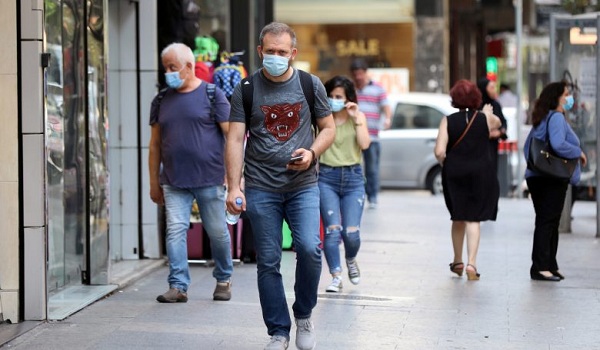Lebanon’s Parliamentary Health Committee has recommended a three week lockdown to curb the unprecedented surge in COVID-19 cases and reduce pressure on the health sector.
This lockdown recommendation comes amid expectations that the number of infections will continue to rise during the next week due to the chaos that Lebanon has witnessed during the holiday period,” according to member of the Parliamentary Health Committee Bilal Abdullah.
An official decision on a lockdown is expected to be taken Monday.
In an interview with Asharq Al-Awsat newspaper, Abdullah said that the high number of infections is the result of intensive contact that occurred during the Christmas period, while the results of the New Year’s evening are expected to appear after a week or 10 days.
Since the onset of the pandemic earlier last year, Lebanon has reported more than 184,000 confirmed Coronavirus cases and 1,479 deaths.
The daily Corona infections in Lebanon exceeded 3500 two days ago, recording an unprecedented number, amid expectations that the number will exceed 5,000 next week.
Yesterday, a number of hospitals and laboratories witnessed a great work overload , as the Lebanese rushed to conduct PCR tests after the New Year’s Eve celebrations.
Abdullah pointed out that the first goal of the closure is “to reduce the speed of the spread of the epidemic and thus reduce the pressure on hospitals.
He warned that this January and next February will be critical months in terms of the number of infections and deaths from the virus.
Head of the Health Committee Assem Araji said that 100 patients had entered intensive care units (ICUs) in the first days of January.
“The death toll has reached 422 in one month, and occupancy rate of ICUs has become 95 percent, which necessitates imposing a three-week full closure across the country as soon as possible because the health sector is also in danger and heading towards disaster,” Araji also said.
“There are about 2,000 doctors and nurses in quarantine and hospital emergency departments are full of patients,” Araji pointed out.
“There are only 51 vacant intensive care units out of 515 rooms in all Lebanese hospitals. The remaining ICUs are filled with critical cases.”
The Secretary-General of the Lebanese Red Cross, Georges Kettaneh, said that hospitals in Beirut were no longer able to accommodate new cases.
“We are contemplating with the concerned parties the possibility of transferring these patients to hospitals outside Beirut and Mount Lebanon.”
Hamda Mustafa

